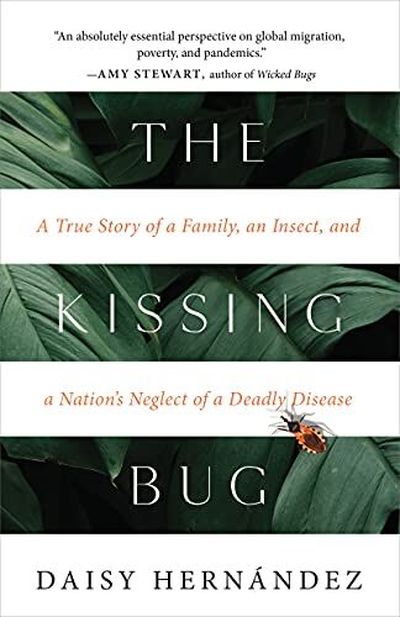Chagas killed her relative, and her book examines why this disease is largely invisible in the U.S.

Triatoma sanguisuga looks like a harmless bug. But the “kissing bug,” as it is known, carries parasites that cause a life-threatening disease.
More than 300,000 people have Chagas in the United States, the Centers for Disease Control and Prevention estimates. Of those, the majority are immigrants from Latin America.
One of them was journalist Daisy Hernández’s Aunt Dora. Her Chagas-caused death prompted Hernández to investigate the disease, its origins and why it remains largely ignored in the United States despite its devastating consequences for Latinos.
Her book, “The Kissing Bug: A True Story of a Family, an Insect and a Nation’s Neglect of a Deadly Disease,” is fueled by grief and righteous anger, but it’s no screed.
It’s lyrical, unflinching and horrifying in turns. Hernández expertly skates the line between memoir and science tome, showing the personal effects of a disease perpetuated by a cascade of systemic failures.
Since the disease can be asymptomatic, it can linger for years without discovery; its acute phase, which includes symptoms such as fever and diarrhea, can be difficult to distinguish from other ailments. Its chronic phase can last a lifetime and come with severe symptoms such as cardiac conditions or gastrointestinal problems.
Hernández is just as interested in the social conditions that fuel Chagas as the medical ones that lead people like her Tía Dora to die. Many patients are undocumented or uninsured and lack the financial resources to seek treatment; insufficient screening and research funding fuel the crisis.
Hernández calls Chagas victims citizens of “a Second America,” a place that renders patients largely invisible, yet blames them for their own illness when it does notice.
She draws connections to other tales of medical inequality, from the Tuskegee syphilis study to the coronavirus pandemic. And she condemns the passivity of a medical establishment that she describes as more focused on profit than public health.
It’s “an American reality,” Hernández says, that “some people are taken care of and others are not.”
The phrase “disparities in health care,” she says, “suggest that a terrible thing has happened, but without active participation on anyone’s part. Disparities arise. Inequalities exist. These words trouble, but, at the same time, offer reprieve: no one is implicated.”
Hernández knows exactly who to implicate – a nation she says is content to let Chagas, poverty, inequality and racism endure.